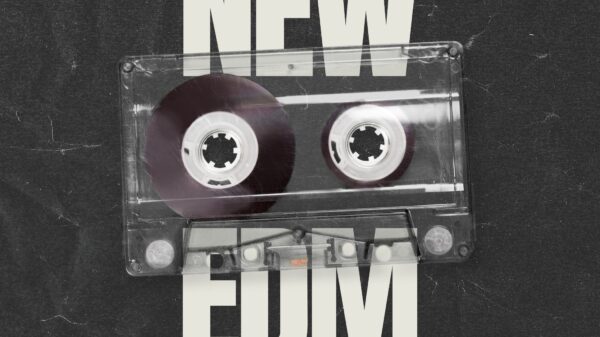From Modest Mouse to The National: What is Indie Music?
Indie music has become a household name in recent years; however, the term “indie” can be traced back to the late 1970s. Indie music is not only a genre, but it's also a subculture that is defined by its DIY ethos, independent production, and resistance to mainstream culture. In this blog post, we will cover everything you need to know about indie music. From its origin to the characteristics that set it apart from other genres of music. We will also take a deep dive into various subgenres of indie music and some of the famous indie artists and bands like Modest Mouse, The National, Arcade Fire, Vampire Weekend, and Bon Iver. Join us as we explore what makes indie music so unique and why it continues to resonate with audiences worldwide.
Introduction to Indie Music
Indie music has become a household name in recent years, but what exactly does it mean? Simply put, indie music refers to independent artists producing and distributing their own music. This genre encompasses a broad range of styles, including lo-fi, experimental, and folk. What sets indie music apart is its non-mainstream sound and resistance to mainstream culture. Despite this, many indie artists have achieved significant commercial success while staying true to their DIY roots. Throughout this blog post, we'll explore the origin of indie music, its defining characteristics, various subgenres and famous indie artists who have made their mark on the industry.
The Origin of Indie Music
The origins of indie music can be traced back to the late 1970s, as a response to the mainstream music industry. Punk rock played a significant role in shaping the genre and inspiring independent artists to create their own distinct sound. However, it was not until the emergence of independent record labels that indie music gained a foothold in the industry. These labels provided a platform for emerging artists who were not signed with major labels. The DIY ethos of indie music encouraged artists to take creative risks and experiment with different genres, leading to the development of an eclectic and diverse range of styles that characterizes indie music today. Through its emphasis on independent production and creativity, this genre has continued to evolve into a vibrant movement that challenges mainstream culture while remaining accessible to fans all over the world.
From Alternative Rock to Independent Music
Independent music emerged in the 1970s as a response to mainstream rock and pop culture. It started as a subgenre of alternative rock and punk rock, but eventually became a genre of its own with a unique identity. Independent record labels were crucial in promoting and distributing indie music, providing a platform for new and experimental artists. In contrast to mainstream music, indie music emphasizes authenticity, originality, and artistic expression over commercial success. Over time, the term “indie” expanded beyond its initial meaning of artists not signed to major record labels to encompass a diverse range of genres and styles. Today, indie music continues to thrive as an important cultural force that challenges the status quo of mainstream popular culture.
Characteristics of Indie Music
Indie music is characterized by several unique traits and characteristics. One of the defining features of indie music is the role that independent record labels play in producing and promoting the music. Indie music often has a non-mainstream sound, with artists taking creative risks and experimenting with different genres. The DIY ethos of indie music also encourages artists to be unconventional and original, creating music that speaks to their authentic experiences.
Another hallmark of indie music is its emphasis on live performances. For many indie musicians, live gigs are essential for gaining exposure and connecting with fans. In addition, indie music has a cult following that appreciates the authenticity and creativity of the artists. These factors combine to create a vibrant and diverse genre that continues to evolve and grow in popularity.
DIY Culture and Independent Production
Indie music's DIY culture and independent production have been a driving force behind its growth and popularity. The ability to produce and distribute music independently has given artists greater creative freedom and control over their work. This has resulted in an emphasis on unique sounds and styles, with many indie musicians using unconventional instruments and experimental approaches to songwriting.
The DIY ethos also extends to promoting and performing the music live, often resulting in intimate shows that connect the artist with their fans on a personal level. By rejecting mainstream trends, indie musicians can focus on originality and creativity without being constrained by commercial interests. This approach has resonated with audiences, leading to a loyal fan base that appreciates the authenticity and passion of indie music.
Emphasis on Originality and Creativity
Indie music is all about originality and creativity. In this genre, artists resist the pressure to conform to mainstream trends and instead prioritize unique sounds and styles. They often experiment with unconventional instruments and approaches to songwriting, resulting in a diverse range of genres from folk to rock to electronic. DIY production and self-distribution allow for greater creative freedom, enabling artists to explore new sounds and styles without fear of commercial failure. Furthermore, the independent nature of indie music attracts listeners seeking music that is authentic and innovative, rather than formulaic or mass-produced. The emphasis on originality and creativity is one of the core values that have made indie music so popular among fans craving something different from the usual mainstream offerings.
Resistance to Mainstream Culture
Indie music is known for its resistance to mainstream culture and commercialism. This genre of music embraces the idea of artistic expression over commercial gain. Indie artists are known to stay true to their unique sound and style, even if it means rejecting mainstream trends. The independent nature of the genre allows artists to experiment and explore new sounds without any external pressures to conform. Independent record labels play a significant role in promoting indie music and allowing artists creative freedom. The emphasis on individuality and creativity has led to a diverse range of indie styles, from lo-fi garage rock to dreamy pop, all with a strong DIY ethic at their core.
Subgenres of Indie Music
Indie music is a genre that encompasses a wide range of subgenres, each with its unique sound and style. From the raw and unpolished sound of lo-fi indie to the complex rhythms of math rock, indie music offers something for every taste. Shoegaze is known for its ethereal and dreamy soundscapes, while post-punk revival draws inspiration from the punk movement of the '70s. Dream pop is another subgenre that features hazy vocals and atmospheric instrumentals. With such a diverse range of sounds and styles, there's no shortage of options when it comes to exploring the world of indie music.
Indie Rock
Indie rock is a subgenre of indie music that emerged in the 1980s as an alternative to mainstream rock. Characterized by its DIY ethos, guitar-driven sound, and introspective lyrics, indie rock bands reject the traditional music industry model and instead focus on building a loyal fan base through touring and word-of-mouth. This approach allows indie musicians to maintain creative control over their work while fostering close relationships with their audience.
Notably, indie rock has influenced other genres of music, including alternative, folk, and even hip hop. The Strokes, Arcade Fire, and Radiohead are just a few examples of successful indie rock bands that continue to inspire new generations of musicians. With their unconventional styles and unwavering commitment to artistic expression, indie rock bands have proven that passion and authenticity can resonate with listeners regardless of commercial success.
Indie Pop
Indie Pop emerged as a subgenre of Indie Music in the 1980s, characterized by catchy melodies, jangly guitars, and upbeat rhythms. Unlike its introspective and brooding cousin, Indie Rock, Indie Pop features lyrics about relationships, everyday life, and personal experiences. The genre often incorporates elements of other musical genres like folk and twee pop to create memorable hooks. Bands like The Smiths, Belle and Sebastian, and Vampire Weekend are considered pioneers of the genre. With its emphasis on melody and accessibility, Indie Pop has continued to evolve into a popular choice among music lovers today.
Shoegaze
Shoegaze is a subgenre of indie rock that has gained considerable recognition since its emergence in the late 1980s. The style is distinct, characterized by distorted guitar sounds and dreamy vocals, along with the use of various effects pedals. Interestingly, the term “shoegaze” was coined as a joke, based on the posture of performers while playing live shows – they often gaze at their feet due to the complex pedal setups required for their sound. The genre has influenced many other styles of music, including post-rock and ambient music. Shoegaze bands like My Bloody Valentine, Slowdive, and Lush remain popular today, and their music continues to inspire new generations of musicians around the world.
Dream Pop
Dream pop is a subgenre of indie music that transports listeners to a surreal and otherworldly musical landscape. The genre is characterized by its ethereal and dreamy soundscapes, featuring hazy vocals, reverb-heavy guitars, and atmospheric synths that create a lush soundscape. Dream pop often explores themes of nostalgia, longing, and introspection in its lyrics, making it an emotive and deeply personal experience for both the artist and the listener.
One of the most well-known dream pop bands is Cocteau Twins, whose music has been described as celestial and otherworldly. Beach House is another popular dream pop band known for their mesmerizing soundscapes. Slowdive is also considered pioneers of the genre with their ethereal vocals and guitar effects. With new artists like Alvvays and DIIV joining the scene, dream pop continues to evolve while maintaining its signature sound.
Famous Indie Artists and Bands
Introducing the famous indie artists and bands, we cannot ignore the impact they have had on the music industry. Indie music's DIY approach to recording and distribution has paved the way for many budding musicians to make a name for themselves. Modest Mouse's unique sound and introspective lyrics have garnered them a loyal fanbase over the years, while The National's moody, atmospheric soundscapes have earned them critical acclaim. Arcade Fire, Bon Iver, and Vampire Weekend are other notable indie artists who have found success in their experimentation with different sounds and themes. With their independent spirit and willingness to take risks, these artists have shaped the direction of modern music culture in profound ways.
Modest Mouse
Modest Mouse is a band that has had a significant impact on the indie rock scene since their formation in 1992. Their unique sound, blending punk, folk, and experimental rock, has inspired many other artists in the genre. Modest Mouse's breakthrough album, “Good News for People Who Love Bad News,” which features the hit single “Float On,” propelled them to mainstream success while maintaining their independent spirit. One of the defining characteristics of their music is their introspective lyrics that explore themes of isolation, alienation, and existentialism. Modest Mouse's distinctive sound combined with their insightful lyrics have made them one of the most respected and influential bands in indie music.
The National
The National is a band that has garnered critical acclaim for their introspective lyrics and moody, atmospheric soundscapes. Their music has been described as hauntingly beautiful, evoking emotions through both lyrics and melody. The band's latest album, “I Am Easy to Find,” is an exploration of love, loss, and aging, featuring collaborations with several female vocalists. The National's music often deals with themes of melancholy and reflection, drawing listeners in with its emotional depth. It's no wonder they've become one of the most popular and influential indie bands around today.
Arcade Fire
Arcade Fire is a Canadian indie rock band that has made a significant impact on the music industry. Their unique sound and captivating live performances have captured the attention of fans and critics alike, resulting in numerous accolades including a Grammy for Album of the Year. The band's music is characterised by complex arrangements, use of unconventional instruments, and emotional lyrics. Arcade Fire's ability to create compelling narratives through their songs has led to them being considered one of the most innovative bands in the indie genre. Their success serves as a testament to the enduring appeal of independent music and the importance of creativity and originality in artistic expression.
Vampire Weekend
Vampire Weekend is a band that defies categorization, blending elements of indie rock, pop, and even world music to create a unique sound that is entirely their own. Their self-titled debut album was an instant classic, with clever lyrics and upbeat melodies that quickly captured the attention of fans and critics alike. Since then, they have continued to push the boundaries of what indie music can be, exploring new directions while staying true to their roots.
At the heart of Vampire Weekend's appeal is their ability to take familiar sounds and styles and put their own unique spin on them. By blending elements of different genres together in unexpected ways, they create a sound that is both fresh and timeless. Whether you're a die-hard fan or just discovering their music for the first time, there's no denying the impact that Vampire Weekend has had on the world of indie music.
Bon Iver
Bon Iver, the American indie-folk band formed in 2006, has left an indelible mark on the indie music scene. Led by singer-songwriter Justin Vernon, Bon Iver's atmospheric soundscapes and layered harmonies have captivated audiences worldwide. The band's debut album, For Emma, Forever Ago, was recorded in a remote cabin in Wisconsin and received critical acclaim for its emotional depth and haunting melodies.
Their unique approach to songwriting and their willingness to experiment with different sounds and textures have helped to define the indie-folk genre. With several Grammy Awards under their belt, Bon Iver continues to push creative boundaries with each new release while remaining true to their roots in independent production and originality. Fans of the genre can't wait to see what Justin Vernon and his bandmates will come up with next.
Frequently Asked Questions
Is Billie Eilish indie?
Billie Eilish is commonly classified as an indie pop artist, but some argue that her success and major label backing disqualify her from being truly independent. The term “indie” has evolved over time and can have different meanings depending on who you ask. Ultimately, whether or not Billie Eilish is considered “indie” is a matter of interpretation.
What make a song indie?
Indie music is characterized by its non-mainstream, independent nature. Indie songs are often self-produced and released through independent record labels or distribution channels, and they typically have a unique sound that sets them apart from mainstream pop music.
In addition to the musical style, the term “indie” can also refer to the attitude and ethos of the musicians themselves. Indie artists prioritize creative freedom and authenticity over commercial success, which contributes to the distinctiveness of their sound and style.
Conclusion
Indie music is a genre that has evolved over the years, but at its core, it represents a form of artistic expression that is free from the constraints of mainstream culture. It is all about originality, creativity, and DIY culture. Indie music has given rise to some of the most celebrated artists and bands in the industry today, such as Modest Mouse, The National, Arcade Fire, Vampire Weekend, and Bon Iver. If you are interested in learning more about indie music and its many subgenres, check out our blog on the topic.















